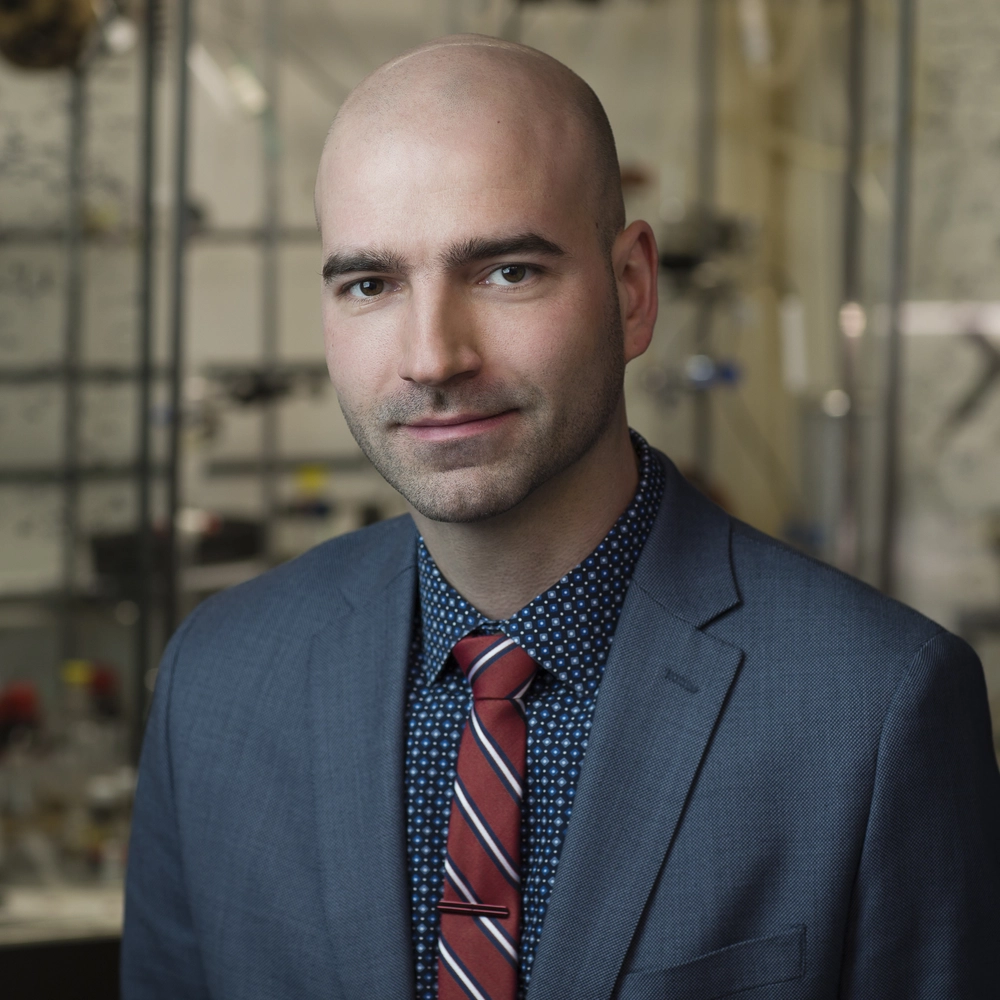
A warm, tropical island protects the secrets of mysterious, colorful flora, while scientists spend decades searching for medical remedies. This may seem like the start to an Indiana Jones adventure, and for University of Illinois Chemistry Assistant Professor and Cancer Center at Illinois member David Sarlah, it is his crusade.
Recently honored as an American Cancer Society Research Scholar, this recognition and the financial award allows Sarlah the chance to immerse himself in a puzzle that has baffled science for years: how can we successfully acquire pancratistatin, a naturally occurring compound that has cancer-fighting properties found in the Hawaiian spider lily?
“I heard about this flower when I was a graduate student; I needed to learn more. It was an unsolved challenge that organic chemists were taught,” said Sarlah. “For many years, organic chemists did not have a good way to access the compounds found in these flowers, but modern advances in chemistry have changed that.”
The pharmaceutical promise of pancratistatin has led chemists, and government programs, to expend lots of energy and financial resources over the years to cultivate these tropical plants (without decimating the Hawaiian landscape). However, the foundational early work yielded weak results – during both the chemical synthesis of the compounds from the flower and massive cultivation attempts outside of Hawaii. In 2017, Sarlah and colleagues discovered a simplified way to produce pancratistatin.
“The way how these natural compounds from the Hawaiian spider lily, and many others, are discovered is by powdering natural samples and extracting them with an organic solvent – similar to making tea.” said Sarlah. “These extracts are then subjected to bioactivity-guided isolation (testing different extracts for anticancer properties) and many other analyses, ultimately pointing towards a single compound – a small organic molecule - responsible for desired activity.”
By understanding the chemical composition of pancratistatin, Sarlah’s lab can perfectly re-create this compound.
“Often, chemistry is a crucial part to enabling drug therapies – more than 50% of anti-cancer drugs are based on natural products,” Sarlah said. “As organic chemists, we must think about what we can do with these natural products, how we can use them in new ways, and how we can replicate these natural molecules in the lab.”
The American Cancer Society awarded Sarlah’s lab more than $700,000 over a four-year period to continue his work with pancratistatin. The proof of concept has already been developed, but the grant money will be used to progress this work to the next level.
“The ACS grant will enable us to focus for four years, intensively, on these compounds and how they perform in anticancer studies. We already had the resources to develop this compound, but now we have additional resources to collaborate across the university and move cancer research forward,” said Sarlah. “Without this funding, it’s sad to think that such a promising compound may have been forgotten again.”
In addition to studying the compounds isolated from the Hawaiian spider lily, the Sarlah Research Group is studying the natural, anti-cancer compounds found in cannabis and sea sponges.
“Mother Nature provides the best medicine. It produces millions of compounds and plants and provides inspiration,” said Sarlah. “Mother Nature is very efficient; everything has a purpose. We do not know what every compound does, but because they have some sort of biological role, we hope that they might have some effect on human biology.”
Jordan Goebig | Communications Coordinator | Cancer Center at Illinois